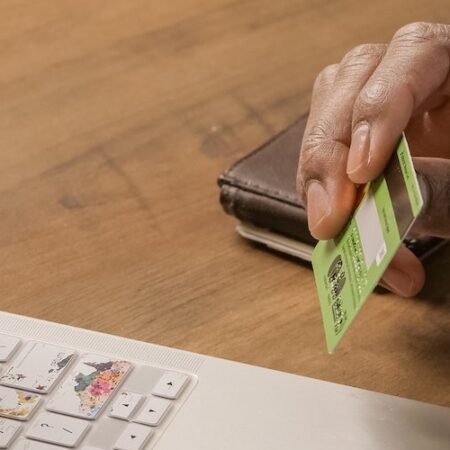
See CreditRepair.com’s disclosure regarding our editorial content.
In 2019 alone, the Federal Trade Commission received more than 3.2 million fraud and identity theft complaints. The total out-of-pocket costs borne by victims of fraud in that year was over $1.9 billion. While no one is immune from these types of crimes, you can take action to help prevent identity theft and make yourself a harder target for these types of criminals.
Why Is It Important to Protect My Identity?
Identity theft is not something to take lightly. It can have far-reaching consequences for your financial life, including your credit. Here are just a few negative issues you can experience after being the victim of identity theft.
- Loss of money. While some credit cards and banks offer protections to ensure you’re not liable for fraud losses, that’s not always the case. And if someone empties your savings accounts or other assets, you might not be able to recover everything.
- Loss of reputation. Identity thieves might use your credit history to run up debt in your name, never paying for any of it. That can create a lot of negative marks on your credit report, and it can be a long-term and difficult process to get them all removed.
- Loss of benefits. If a fraudster uses your identity to accept medical or government benefits, you may not be able to claim them yourself when the time comes. This can include healthcare coverage, Medicare coverage or Social Security benefits.
- Tax woes. Someone can use your identity to file a false tax return, claiming a refund in your name. That makes it unlikely you’ll get your own refund, and it can also create a monster of an IRS issue to sort out.
7 Ways to Prevent Identity Theft
You can’t prevent identity theft 100%. Even major corporations such as Target haven’t been able to prevent hacks and stolen information. But you can take some practical steps to make yourself a less friendly target to fraudsters, and that goes a long way toward protecting your reputation and assets.
1. Place a Fraud Alert (or Three)
If you’re concerned that you might be a potential identity theft victim, you can ask the credit bureaus to place a fraud alert on your account. This alert notifies potential creditors that you’re worried about your identity. They must take extra steps to verify your identity before they issue credit in your name.
A fraud alert lasts for one year, so you have to remember to request them again annually. According to the Federal Trade Commission, fraud alerts are free. You also only have to contact one credit bureau with this request—they should contact the other two on your behalf.
2. Freeze Your Credit
Take this even further and freeze your credit. When you freeze your credit, no one can access your credit report without your unique PIN. This helps lock down your information, but it does mean you might have to plan ahead if you are going to apply for credit yourself—or if a potential employer or insurance service provider needs to run your credit as part of a background check.

3. Protect Your Information
Take steps to protect your private information. Fraudsters trade in personal information on the internet, selling Social Security numbers, account numbers and other information to people who use it for the purpose of identity theft. Here are some tips for keeping your information more secure.
- Don’t give your Social Security number out unless you’re required to. Many forms that ask for a SSN don’t actually require it, so don’t be afraid to ask if you can skip that section.
- Keep your Social Security card and other sensitive documents in a safe, secure location, such as a locked box or filing cabinet.
- Don’t share your passwords and PINs with others.
- Shred or tear up mail. If you toss whole statements, bills or other pieces of mail in the garbage, identity thieves might take it and use the information they find.
- Carry your credit and debit cards in an RFID wallet or pocketbook. These accessories include built-in protection against identity thieves that try to steal your credit card information with devices that emit radio frequencies to read the information embedded on strips or chips on the card.
4. Use Complex Passwords
Use strong passwords on your accounts, email and computers. Don’t use simple words or personal information that someone might guess, such as children’s names or family birthdays.
A good password is at least eight characters—more is better. You also want a mix of capital and lowercase letters, numbers and special characters. Special characters include those such as $, # and &.
Change your passwords regularly. At minimum, change them once a quarter—and avoid using the same password for every account. A hacker only has to figure out one password to access all your information if you do that.
5. Review Your Accounts
Always read all billing statements that come in to ensure the charges make sense. Review your credit card statements, and consider signing up for online access to all your credit, loan and bank accounts. That way, you can check them once a week or so to ensure there’s no odd activity. In the case of a checking account, you might want to check it every morning, because the sooner you report odd activity, the more likely you are to see a positive resolution.
6. Keep an Eye on Your Devices
Computers, mobile devices and even smart appliances can all be entry points for hackers. Make sure you lock down your home network with a password, and avoid linking your devices to public Wi-Fi you don’t trust. Even if you trust the public Wi-Fi source, avoid taking sensitive action such as logging into your bank account when you’re on it.
You can also install virus protection software that keeps malware and spyware off your computer. And as a general rule of thumb, simply be vigilant when you’re browsing the internet. Avoid clicking on unknown links or downloading items from sites you don’t know and trust.
7. Check Your Credit Reports Regularly
Check your credit reports frequently so you know if potentially fraudulent activity is being reported. This step is also important because it’s completely possible that someone made a mistake and your report has inaccurate negative information that isn’t fraudulent. You’ll want to dispute that information to protect your credit.
Through April 2021, you can get your credit reports weekly from all three bureaus via AnnualCreditReport.com. This is a benefit being offered due to COVID-19. Usually, this benefit is only offered once a year.
How Do I Know If My Identity Has Been Stolen?
Odd items on your credit report or money missing from your bank are both potential signs your identity was stolen. Other signs can include:
- Calls from your bank or notifications from your credit card company about odd transactions
- Receiving packages that you didn’t order
- Not receiving mail you expected, such as regular statements or bills
- Being denied for benefits or services supposedly because you already received them, but you know you didn’t
Be Ready to Take Action

It’s important to stay aware of your credit report and all your accounts. Knowing as soon as possible that there’s a potential problem lets you act quickly—and that can make a big difference in how much you lose or what types of challenges you face in righting your financial ship after identity theft. Cleaning up your credit history can be one of the challenges you’ll face following identity theft. If you find yourself in need of help with that, consider reaching out to CreditRepair.com. Our professional credit repair services can help you aggressively dispute inaccurate information on your credit reports to help restore your good name.






